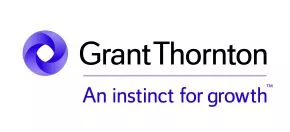During the holiday season, many private businesses will see an increase in seasonal workers, an influx in sales activity and out-of-the-ordinary work schedules—and with that change in routine comes an increased risk of fraud1. Yet very few businesses will take steps to deal with this risk ahead of time—opting, instead, to take a more reactive approach.
This strategy can have severe consequences for a private business. The key, then, is to minimize your risk of becoming exposed to major fraud—which typically means adopting a preventative fraud strategy before the holiday season arrives. While, it is an undeniably fantastic opportunity to celebrate, our defenses are often passed over by our glowing holiday spirit.
Here are four simple things you can do to get the ball rolling:
1. Perform a fraud risk assessment
As with many things, it's important to recognize your strengths and weaknesses before taking steps to mitigate the risk of fraud. So before the holiday season is in full swing, take some time to perform a fraud risk assessment to look at the existing processes within your organization and evaluate the effectiveness of the controls you already have in place. Things change during this time of year, so it's important to make sure your existing systems are relevant. This assessment can be performed internally or with the help of an external consultant.
2. Establish a whistleblower hotline
With almost 40 percent of fraud issues identified through tips and whistleblowers, one of the least expensive and most effective fraud prevention measures you can implement is a whistleblower hotline. (To give you some perspective, an audit only catches three percent of fraudulent activity.) Such a measure can come in particularly handy as your staff temporarily grows over the holidays—and can be even more effective if you request members of your supply chain to implement this tool as well.
3. Invest in fraud awareness training
A whistleblower hotline becomes much more valuable when implemented alongside employee fraud awareness training. Contrary to popular belief, fraud awareness training doesn't turn employees into fraudsters (those that are so inclined would find a way to do it with or without training). What it does do is help your employees detect fraudulent acts earlier—and minimize the damage caused by them.
4. Purchase fraud insurance
Fraud insurance is a great way to attain peace of mind during the holiday season. Something as simple as increasing the amount of employee theft insurance coverage can pay dividends down the road. And while it's true you can't completely eliminate the risk of fraud, you can reduce it—and insurance is a great way to minimize the damage should your business get hit.
There's no way around it—developing a solid fraud prevention plan takes time and money. Yet, while it's no easy feat, it's a lot easier than trying to save your business after a fraud has been committed. And since it will help you breathe a little easier too, such a plan just may allow you to get into the holiday spirit.
Footnotes
1 The Association of Certified Fraud Examiners (ACFE) 2012 Survey Report
The content of this article is intended to provide a general guide to the subject matter. Specialist advice should be sought about your specific circumstances.

